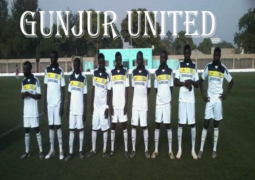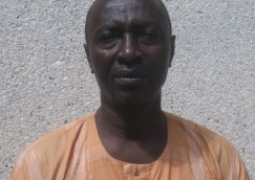It hurt him so bad to see his son leave but what else could he have done? Young people sometimes think they know it all; that they have all the solutions to life’s problems when they don’t.Sometimes, it is good to let them go the whole hog so they could count the cost even though this is what parents want to spare them from. There is a common adage which says that ‘an elderly person in a crouching position can see much further than a young person who is on his two feet.’ For old folks it is all ‘déjà vu.’
Daddy knew that his son will regret the move and must have dreaded the outcome. He envisaged it would happen sooner than later, because he made it a habit of going to the window daily to see whether his son was on his way back to the comfort of his home - where nothing was amiss. He had all the love, attention and care he needed until he was mature to face the ordeals of this life on his own yet he wanted to call it quits.
Someone somewhere was going to take advantage of this young man’s inexperience for sure. That is how the world operates – ‘man eat man.’ In the world, people look out for soft targets, those who display their ignorance and innocence so they could get the better of them. This is rampant in our towns and cities. You recognise a JJC (Johnny just come) or a JJD (Johnny just drop) when you see one and s/he becomes easy prey for the tricksters, pickpockets and bandits.
Young man, young woman your parent is not your enemy. Your enemy is the devil who wants to put you at loggerheads with them. Talk to them, confer with them, tap on their knowledge and experience to guide you and cling to them until you can fly on your own. Book knowledge is adequate for passing exams; street knowledge calls for people with hard backbones. The reality of life is lived out daily through diverse encounters that help to build us up. The world is rough out there and knows no mercy or compassion.
Our young man experiments with life. He makes new friends, they crowd around him. As long as he is loaded, every passer-by will court his friendship. In a short while his funds dry up and he is in want. He is stranded. Flies like wet surfaces; all of a sudden there are no ‘fly-friends’ and acquaintances around. Shocking lesson for our young man! He is on his own and of no use to anyone. They have sucked him dry. “After he had spent everything, there was a severe famine in that whole country, and he began to be in need.” (Luke 15:14)
This young man grew up in a well-to-do family set-up. They owned property, reared livestock and hired servants. He got to a stage in his adventure when he fell to the lowest level ever. “He longed to fill his stomach with the pods that the pigs were eating, but no one gave him anything.” (Luke 15:16) Matters came to a crunch. He realised he had a background and he could not identify with the present status quo. He had just one resource left which his present condition had aroused in him. ‘He thought to himself,’ in other words he reasoned – something he should have done at the onset.
When he embarked on this trip, he did not reflect over it a lot – it was like a reflex, a spontaneous move. This time around as his whole world seemed to crumble around him, the bible account reads “When he came to his senses, he said … I will set out and go back to my father and will say to him: Father I have sinned against heaven and against you. I am no longer worthy to be called your son; make me like one of your hired men.” (Luke 15:17-19) He takes his courage in both hands and resolutely sets out on the journey back home. “So he got up and went to his father.” (Luke 15:20)
At this stage it becomes apparent that the young man has learnt his lesson and is beginning to use his head. He sits down and analyses all that he has been through. He weighs the pros and the cons and decides to do something about it. He did not cry about it; he realises his fault - what his stubbornness has brought him and he takes the bull by the horns. “I will arise and go to my father and will say to him ….” All these verbs are action words. He is going to make the move. He is dissatisfied with the outcome of his adventure. He plans a comeback all on his own.
Each time I read this story I am amazed at the young man’s ability to want to salvage the situation singlehandedly. He had taken the decision to leave home on an adventure on his own – he hardly planned anything. Now that things have gone wrong, he does not go looking for an adviser, he senses what the problem has been. He even puts a finger on the real issue at hand. He knows how far he has fallen and he wants to make amends. He comes to terms with himself.
Where others would have wallowed in the mire, the young man raised his head instead - rather than be engulfed the more into a worst state of despair. His failure brought out his innate strength and courage - both essential ingredients for a lift-up. A common adage says ‘when you lose, do not lose the lesson as well.’ He was determined to right the wrong so he set off heading for the cradle to bury his past and open a new page for a brilliant future.
Read Other Articles In Article (Archive)
Jamwelly Women Calls For Support
Oct 30, 2009, 12:05 PM



